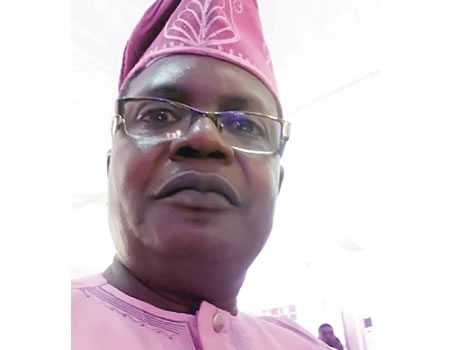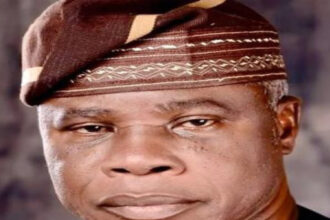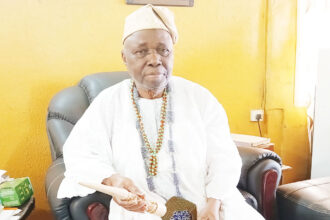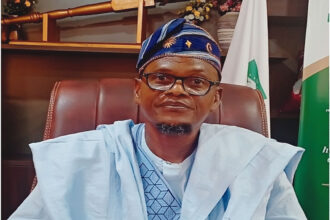AS a major investor in Apapa which harbours the nation’s main sea port, what went wrong such that the infrastructure in Apapa is currently in a sorry state?
It is an understatement to say Apapa is currently in a mess. Traffic has eaten deep into all businesses. The current infrastructural decay in Apapa did not happen overnight. It started many years ago. In slow degree, it attained the present sorry state. Many of the infrastructure date back to the colonial days.
In other words, they are old. No new ones are built. The old infrastructure are not maintained. For instance, the wreckage of the colonial railway lines and locomotive engines are seen as abandoned properties in Apapa. The roads and bridges are ageing with poor maintenance through the years. Many of the infrastructure were provided for few users. Later, the number of users rose astronomically as more businesses sprang up in Apapa. The few roads in Apapa were meant to complement the rail system. But the railway system was killed against national progress. Trucks and trailers were imported by the same individuals in hundreds of thousands to replace trains. The road network, originally meant to compliment railway system, became a dominant means of transporting goods to the inland. Until the bridges started to crack, no one paid any major attention to their maintenance. The number of heavy trucks coming and going into the port was responsible for the incalculable damage done to the roads and bridges in Apapa, Ijora, Ajegunle, Kirikiri, Tin Can, Iganmu, Eric More, Costain, Eko Bridge and the environs. The roads and bridges have been turned into illegal motor parks; vehicles are indiscriminately parked on the bridges without consideration for the potential risks.
It has become fashionable to park fuel tankers and trailers, as well as other heavy trucks on the bridges. Perhaps, the Council of Registered engineers (COREN) has assured the nation that those bridges can never collapse, irrespective of load they may carry. We might be toying with a time bomb.
Again, the Apapa ports, cluding the Tin Can island Port Complex, remain the only functional and busy sea ports in the country. The other five national sea ports are relatively latent. So, more business activities concentrate in Apapa ports and that means the nation is currently losing huge revenues that ought to be channeled into other development activities that could serve as catalyst for general economic growth and development of the country.
Who should be blamed and why, because the various stakeholders usually pass the buck on the matter?
The blame should go to the past governments, especially the military regimes that held onto political power for decades after sacking civilians at different phases in the life of the nation. They are to be blamed for being parochial to have allowed railway system to give way for trailers. But beyond that, we should also ask, why did successive administrations fail to restore the trains in Apapa post-military era? The owners of the trailers plying Apaparoads also have to be blamed for the abysmal neglect of sea ports. Majority of them are very inconsiderate. They have no respect for other road users and other business owners. They are unpatriotic for not maintaining the infrastructure provided by the government. They don’t even know that the infrastructure belongs to all.
I must note that every business owner in Apapa is a stakeholder. The incessant traffic in Apapa has killed almost all businesses. For now, there is virtually no business again in Apapa. Many businesses have closed down. Many companies in Apapa have closed down or relocated from Apapa. Many people have lost their jobs. Many homes are broken. Many houses have been deserted. Many buildings are being put on sale. Tenants have migrated out of Apapa. The churches and mosques in Apapa have lost membership. Eateries, hospitals, hotels, malls, among others, are all out of business in Apapa. Even the heavy trucks that constitute nuisance in Apapa are locked up in the traffic caused by themselves for most hours of the day thereby losing business. Dangote, a major stake holders in Apapa, would also be feeling the impact of the heavy traffic in his business. The government is losing huge revenues than even the individual business owners. So, all the stakeholders are adversely affected. People are forced to ride on commercial motorcycles called okada notwithstanding the diverse risks. Transport fare to and from Apapa has hit the rooftop. People stay hours in the heavy traffic day and night, just as many commuters stay hours at the bus stops waiting for buses with some losing their phones, bags and other valuables to hoodlums.
What kind of proactive steps would you suggest that the government take or is it doing enough over the crisis?
The present government has a duty to restore normalcy at the Apapa port. I am aware of the ongoing collaboration between the Lagos State government and Dangote on the matter; it is evident that Governor Akinwunmi Ambode is not shying away from the problems. Both Dangote and the state government are major stakeholders, so one is hopeful that they would restore the glory of Apapa someday.
Several other stakeholders are standing akimbo, waiting for the government and Dangote to finance the project. Many of them also have a fleet of trucks that caused the mess on ground. It is proper and appropriate for them to collaborate on the way forward. The military, Navy, Police, LASTMA and other law enforcement agents are doing a great work in Apapa, especially on the bridges located at Ijora, Costain, Iganmu, Ajegunle. It is their efforts that have made it possible for people to have a semblance of access to the port and the environs to transact business in Apapa.
In short, it is war day and night between the residents, businessmen and other investor and the belligerent and bellicose drivers of these tankers and trailers. The tankers and trailers park indiscriminately; sometimes they block the gate and entrance to peoples’ residences, factories and general business premises. People now live in fear; they feel insecure. What kind of life is this? We are sitting on a keg of gunpowder. God forbid any emergency, how can anyone run out of the house or Lagos when all roads are blocked even to one’s gate? Something urgent must be done to avert a major crisis because people are bound to react sharply once they feel pushed to the wall.
What is the general implication of the current crisis on the government’s drive for more investments in the nation’s economy?
Currently, Apapa is a ‘no go area’ for new business investors. With the prevailing chaotic traffic situation in Apapa, no sane investors may wish to risk his fund. They will rather wait for a congenial business atmosphere to return to Apapa or resolved to invest in other countries with relative sanity at their sea ports. The current general traffic situation in Lagos could further de-market the state nay the sea port. All the entries to Lagos by road are always blocked. The Lagos- Ibadan Expressway remains an issue since 1999. Coming through Epe to Lagos Island is a problem as the Lekki axis is notorious for heavy traffic. Entering Lagos either from Abeokuta or Badagry is almost worse most of the time because of perpetual heavy vehicular traffic buildup.
The situation has reached a crescendo, where the government and individuals must rise to save Lagos. Lagos is a big economic centre where every businessman wants to operate. Even other states are envious of the status of Lagos as the economic capital of Nigeria (whether officially declared or not}. For this reason, we need to team up with the government to proffer solutions to the Lagos traffic situation.
In more specific terms, let me start with Alhaji Aliko Dangote, a major stakeholder in Apapaand in the Nigeria business environment. Dangote is, no doubt, a pride to Nigeria and Africa. His business has grown beyond depending solely on the use of trucks, trailers and tankers to take his products out of wharf to the inland. Dangote should consider having his own trains and railway lines, even if it has to be a joint venture with the Lagos State Government. This will give him more peace and better business management. There will be less overhead cost. His losses would be minimised. The heart-breaking challenges he may be having from hundreds of drivers he keeps would varnish. He can then keep fewer trucks and spend less on truck maintenance. This will in turn make his products cheaper for the consumers.
Let the government consider another bridge from CMS to Apapa across the waters. This will boost business in Apapa. More local and foreign investors would be attracted. There will be more revenue for the government. A toll for income generation can be put on the bridge. The national leader of the ruling All Progressives Congress (APC), Asiwaju Bola Tinubu should also consider this for the benefit of the people.








